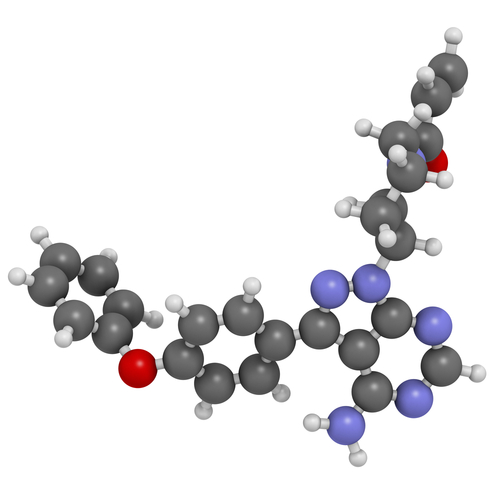Santa Monica, California, based Kite Pharma, Inc. (Kite) on Monday provided in a Conference Call and Webcast, an updated progress report from the company’s ongoing Phase 1/2 clinical trial of its pipeline candidate KTE-C19 therapy in patients with refractory aggressive non-Hodgkin’s lymphoma (NHL) for whom prior chemotherapy treatments have failed and who have a poor prognosis. KTE-C19 is an investigational therapy under development by the clinical-stage biopharmaceutical company which specializes in development of novel cancer immunotherapy products, with a primary focus on engineered autologous T-cell (eACT) designed to restore the immune system’s ability to recognize and eradicate tumors.
According to the Lymphoma Research Foundation, lymphoma is the most common form of blood cancer with its two main subtypes being Hodgkin lymphoma and non-Hodgkin lymphoma (NHL). Lymphoma occurs when cells of the immune system called lymphocytes, a type of white blood cell, grow and multiply uncontrollably. Cancerous lymphocytes can travel to any part of the body where blood flows, including the lymph nodes, spleen, bone marrow, blood, or other organs, and form tumors. The lymphocytes can develop into two classes of lymphomas: B-lymphocytes (B-cells) and T-lymphocytes (T-cells).
KTE-C19 genetically modifies a patient’s T cells to express a Chimeric Antigen Receptor (CAR) designed to target the antigen CD19, a protein that is expressed on the cell surface of B-cell lymphomas and leukemias. Chronic lymphocytic leukemia (CLL) and small lymphocytic lymphoma (SLL) are cancers that affect the same lymphocytes, and are essentially the same disease, with the only difference being where the cancer primarily occurs. When most of the cancer cells are located in the bloodstream and the bone marrow, the disease is referred to as CLL, although the lymph nodes and spleen are often involved. When the cancer cells are located mostly in the lymph nodes, the disease is called SLL.The American Cancer Society says that while leukemia cells from CLL and SLL look alike, lab tests can distinguish between them by looking for proteins called ZAP-70 and CD38. If the CLL cells contain low amounts of these proteins, the leukemia tends to grow more slowly.
The purpose of Kite’s Pharma’s Phase 1-2 Multi-Center Study Evaluating KTE-C19 in Subjects With Refractory Aggressive Non-Hodgkin Lymphoma (NHL) — a single arm, open-label, multi-center study, is to investigate KTE-C19 therapy’s effectiveness, safety, and efficacy as therapy in treating in patients with refractory diffuse large B-cell lymphoma (DLBCL), primary mediastinal B-cell lymphoma (PMBCL), or transformed follicular lymphoma (TFL). Upon completion of the Phase 1 portion of the study, Kite expects to proceed with the Phase 2 portion that will include a total of approximately 112 patients. Additional information about Kite’s Phase 1/2 study ca be found at ClinicalTrials.gov, using Identifier NCT: 02348216.
Kite had announced in May that the first patient recruited had entered KTE-C19 treatment in the Phase 1 portion of the trial, and the company and reported this week that they have since treated multiple patient participants, and that complete responses have been observed by investigators. The responses happened shortly after treatment was administered, and Kite is monitoring these patients to determine durability of the treatment. To date, they report that toxicities associated with treatment have been similar to those observed in the National Cancer Institute’s study of anti-CD19 CAR T cell therapy. There was one patient death early in the study, which was determined to be unrelated to KTE-C19 by the study investigator.
After appropriate discussions with the U.S. Food and Drug Administration (FDA), Kite has continued to enroll and treat patients in its study, which has never been placed on clinical hold. Kite has submitted an abstract and plans to present top-line data from the Phase 1 portion of the trial at the upcoming 2015 American Society of Hematology (ASH) Annual Meeting, scheduled to be held in Orlando, Florida, December 5-8, 2015.
 “We are encouraged by the progress of the KTE-C19 clinical trial and excited by the responses we have seen so far. We believe the KTE-C19 clinical findings are in line with previous results demonstrating the potential of this promising therapeutic approach,” says Arie Belldegrun, M.D., FACS, Chairman, President and Chief Executive Officer of Kite in a release. “In agreement with ASH, we have taken this exceptional step of providing an update on the trial in order to address recent misinformation in the market related to our clinical program. We are on track to transition to the Phase 2 portion of the trial and plan to present Phase 1 data at ASH later this year.”
“We are encouraged by the progress of the KTE-C19 clinical trial and excited by the responses we have seen so far. We believe the KTE-C19 clinical findings are in line with previous results demonstrating the potential of this promising therapeutic approach,” says Arie Belldegrun, M.D., FACS, Chairman, President and Chief Executive Officer of Kite in a release. “In agreement with ASH, we have taken this exceptional step of providing an update on the trial in order to address recent misinformation in the market related to our clinical program. We are on track to transition to the Phase 2 portion of the trial and plan to present Phase 1 data at ASH later this year.”
A replay of Kite’s August 17, 2015 live conference call and webcast may be accessed by visiting the Company’s website at http://ir.kitepharma.com/. The webcast will be available for two weeks.
Sources:
Kite Pharma, Inc.
ClinicalTrials.gov
Lymphoma Research Foundation
The American Cancer Society
Image Credits:
Kite Pharma, Inc.


